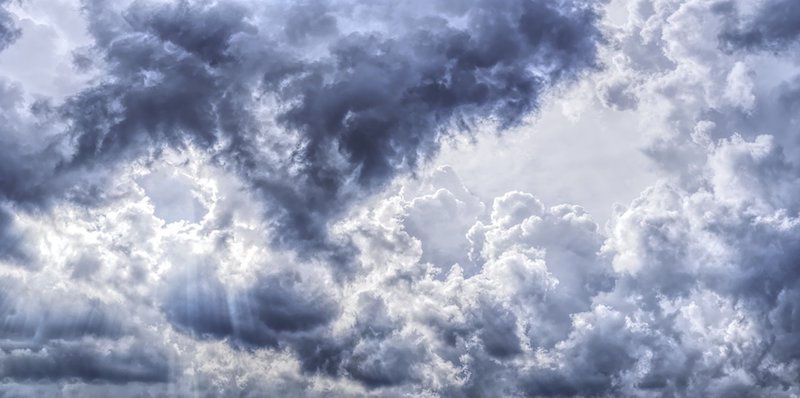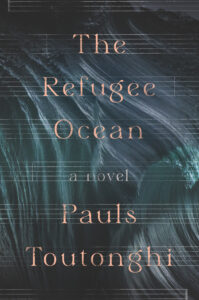
A Crisis of Faith: Pauls Toutonghi on Finding Purpose in Creativity
"I had created something—something that I’d honestly thought of as maybe a little brilliant but also maybe a little crazy."
I was fifteen years old—a dejected sophomore at Garfield High School in Seattle, Washington. My life had come apart in the last year, as the main certitude of my adolescence—an unwavering belief in heaven, in all the mythos of a religious worldview—had simply evaporated. It wasn’t complex and it wasn’t slow. One night, lying in bed, watching the motion of headlights across the wall of my 2nd floor bedroom, I suddenly lost my belief in God. It was irreversible. And devastating.
According to the National Longitudinal Study of Adolescent to Adult Health, between 4% and 6% of adolescents “report each form of drastic increase or decrease in religiosity.” For me, it was a decrease. And it left me startled and unmoored in my own life, unable to understand or comprehend most anything.
I suddenly lost my belief in God. It was irreversible. And devastating.
It was a bad time in the house. My mother had moved out. She was across town in Wallingford, nursing my grandmother—who was terminally ill with colon cancer. Even now, I struggle to find the way to describe the relationship that I was losing as my grandmother died. There’s a word in Latvian, šūpulīte, which is a noun, one that roughly translates to “little cradle.” But, like most words, it has a complex cloud of associative meanings—many of them expressing ideas of nurturing and gentleness. It can also be used as a verb—as in, you cradled me, nourished me, rocked me to sleep. You held me calmly when I was most tired. This was my Latvian grandmother.
But it wasn’t just that side of the family that was collapsing. My other grandmother—born in Beirut—had died the year before, and my grandfather, who was ninety years old and nearly deaf, had moved in with us. Grandpa was a divisive, complex presence in our tiny home. He was a Napoleonic figure in both a physical and temperamental sense; he stood four-foot-eleven, spoke Arabic, French, Italian, Spanish, and English, and attended to others with a mix of imperiousness and paternalistic condescension. He would say a rosary for you, but then he’d ignore you when you begged him to turn down Animal Planet from maximum volume on his television.
What made matters worse was that my father had spent World War II as a troublemaking teenager in Cairo, Egypt—where he’d been born and raised. He’d constantly gotten into fights on the streets of the city, and had opportunistically stolen anything he could get his hands on: Mangoes, cigarettes, hand grenades. Seared with guilt over the mistakes he’d made as a teen, my father had become an overprotective and watchful parent—and he was adamant that I spend most of my time safely inside of the house. That way, I wouldn’t be able to drink, I wouldn’t get interested in girls. I would safeguard my immortal soul.
But the house, of course, was filled with the noise of grandpa’s television. And, to blot out that noise, my father retreated to his bedroom, where he turned on his television at a competing volume. Our 1300 square feet resounded with sonic chaos.
I failed many of my classes that year. Then, one day, in creative writing, Mr. Levinson handed out a strange assignment. Write a 5-page play—a scene, really—and a visiting playwright would look it over.
I almost didn’t do it. I wasn’t doing anything, really, except reading Beckett plays and Tom Clancy novels and listening to Mudhoney and The Melvins in my bedroom. I’d failed math and chemistry the previous quarter; my European history teacher had decried—in front of the class—my “flippant and cavalier attitude.” My GPA was a 1.8.
But the night before the assignment was due I wrote a play about the thing that I—and Holden Caulfied—both passionately hated: The phoniness of organized structures, the way that religious belief was—in my fifteen-year-old mind—nothing but pretense and emptiness. I didn’t say this directly. But I implied it through the action of the scene. In one area of the stage, a priest was praying, on his knees, to God. In another, an identically-dressed priest was mowing down his parishioners with a machine gun.
The next day, class began with a flourish. Ted Sod, the visiting playwright, stormed through the door. We’d all done good work, he told us, but one play—in particular—stood out. It was amazing, he said. Incredible work. He wanted, in fact, to turn the class over to this student, and have him talk about what he’d done. And then, to my inestimable shock, he pointed at me.
Thinking about this moment now, thirty-two years later, I nearly weep. I had created something—something that I’d honestly thought of as maybe a little brilliant but also maybe a little crazy—and here was an adult, standing in front of my peers, and pointing to me, and telling me that my effort had value, tremendous value, and that it had shocked and captivated and pleased him. I didn’t know what to stay. I turned bright red—could feel the hot embarrassment spreading across my cheeks. I stammered a few things that I don’t remember. I could tell he felt badly for putting me on the spot.
I don’t know what would have happened if those two teachers hadn’t had faith in me.
I’d been unable to fully articulate what I’d done, Ted Sod told the class, but that didn’t matter. The work itself would show us! He’d printed out copies of the play, he continued, enough copies for everyone, and—over the rest of the class period—we went through my play and talked about my ideas. I calmed down a bit, and was able to discuss what I’d done. I felt seen and, for a moment, lifted from my despair.
The bell rang. Word spread quickly through my friends about what had happened. I think it was startling to everyone because there was no doubt that I was a troubled kid; acting out, failing classes, headed for some kind of indefinite trouble. But this? This was a reversal. Now I had a different trajectory. I had an identity. A profile.
I turned in a short story next, and Mr. Levinson, during our after-class, one-on-one conference said quietly to me: “You’re going to do this professionally, right? You’re going to go get an MFA in Creative Writing? You’re going to write books?”
Those soft-spoken, gentle, insistent questions—like the moment that Ted Sod turned the attention onto my play—buoyed me for decades. He was a great teacher—Mr. Levinson—and his faith in me was unlike anything I’d felt in my house, where I’d felt primarily shame.
Of course, once I had children of my own, and experienced the pain and confusion of caring for my own aging parents, I saw my father’s struggles differently. I understood his desire to protect me, and—even his desire to barricade himself in his bedroom, hiding from the chaos that his family had suddenly brought him.
And slowly, gradually, over many years, I returned to a kind of spirituality—one not tied to formal strictures of any kind—but rather to a simple-minded belief in the unknowability of human experience, and the folly of human certitude. But I don’t know what would have happened if those two teachers hadn’t had faith in me. If they hadn’t said—thank you for describing your world through art. I’d love to sit down next to you and listen.
__________________________________

The Refugee Ocean by Pauls Toutonghi is available from Simon & Schuster.
Pauls Toutonghi
Pauls Toutonghi’s parents were both refugees to the United States. He has been awarded a Pushcart Prize, an Andrew W. Mellon research fellowship, a Fulbright Grant, and a residency at Hawthornden Castle. He has written for The New Yorker, The New York Times Book Review, Outside Magazine, Sports Illustrated, Granta, Tin House, and other periodicals. He’s married to the novelist, Peyton Marshall. He lives in Oregon, where he teaches at Lewis and Clark College.



















